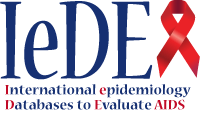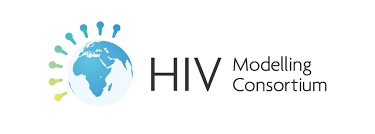
UNAIDS Reference Group on Estimates, Modelling and Projections develops and oversees the methods used to generate global AIDS statistics. The ALPHA Network is a regular contributor to their work.

Implementation Network for Sharing Population Information from Research Entities in East Africa (INSPIRE-EA) recognises the value of sharing harmonised, FAIR data across countries and across settings, and it sets up the mechanism by which these data can be produced. Its aim is to build a network of data professionals to create a prototype for an early warning and response database. INSPIRE-EA network will concentrate on longitudinal population cohorts in East Africa, and to focus on producing a prototype database based on HIV, using existing work from the ALPHA network, to harmonise data and associated metadata.

International Epidemiological Databases to Evaluate AIDS (IeDEA) is the network organisation for clinical HIV cohort studies. It was established in 2005 by the National Institute of Allergy and Infectious Diseases (NIAID) to provide a rich resource for globally diverse HIV/AIDS data. IeDEA is organised globally by region; sites in various regions throughout the world collaborate to collect and define key variables, and implement methodology to effectively analyze data as a cost-effective means of generating large data sets to address the high priority HIV/AIDS research questions that are unanswerable by a single cohort. ALPHA Network study sites are in their Southern and Eastern Africa regions: Kisesa, Rakai and uMkhanyakude are currently served by clinics that belong to IeDEA.

The HIV Modelling Consortium aims to help improve scientific support for decision making by coordinating a wide range of research activities in mathematically modelling the HIV epidemic. The Consortium is funded by the Bill & Melinda Gates Foundation through a grant to Imperial College London. They have an agreement with the ALPHA Network concerning requests for the production of aggregate comparative statistics from pooled harmonised data sets.

Measurement and Surveillance of HIV Epidemics (MeSH Consortium) develops, tests and implements innovative and efficient methods for routine HIV measurement and surveillance among adults and children. The Consortium maximizes the potential of data routinely collected through HIV surveillance and service delivery platforms to provide timely information on key outcomes in relevant populations at a level appropriate to support resource allocation and realignment. The MeSH Consortium is a research group based at the LSHTM, working closely on HIV mortality measurement with the ALPHA Network group.

Strengthening Health Systems for the Application of Policy to Enable Universal Test and Treat (SHAPE UTT)
SHAPE UTT project was funded by the MRC/Wellcome and ran January 2017- December 2020, involving Alison Wringe (PI), Jenny Renju (Co-I) and Jim Todd (Co-I), working alongside Alpha Network partners in Karonga (Mia Crampin), Ifakara (Eveline Geubbels) and uMhanyakude (Mosa Moshabela).
In 2016, the World Health Organization (WHO) recommended the initiation of antiretroviral initiation regardless of immunological status for all people living with HIV (PLHIV), a policy which many African countries adopted in later in the same year. Despite the guidance the UN declaration and WHO guidance acknowledge concerns about the feasibility of universal test and treat (UTT) within overburdened, weak health systems. Even prior to such ambitious policies many African HIV programmes already experienced sub-optimal HIV testing and retention rates. The increased demands on health systems through additional patient loads could lead to drug stock-outs, drug resistance, inadequate patient preparation and poor adherence.
Despite these challenges, there has been a dearth of research to inform the preparatory processes that will be needed for successful implementation of UTT, if it is to garner much needed opportunities to strengthen health systems and reduce these risks. Important lessons can be drawn from the experience of Option B+ implementation (test and treat in pregnant and breastfeeding women), widely viewed as the precursor to UTT, and first implemented in Malawi in a bold policy move in 2011. It affords a rare opportunity to investigate how the policy implementation process has impacted on health systems, with a view to prospectively considering the readiness of health systems to absorb further expansion of the policy to the general population.
This project will addressed a critical evidence gap by ascertaining heath systems preparedness for delivering UTT. We compared the experiences and health systems impacts of Option B+ policy implementation, widely viewed as the precursor to UTT, in three settings (Karonga, Malawi; Ifakara, Tanzania; and uMhanyakude, South Africa).

Sustainable Evaluation through Analysis of Routinely Collected HIV data project (SEARCH) project aimed to support the utilisation of routinely-collected HIV data for strengthening services, and provide transparency about the benefits and equity in delivering services to people living with HIV. It was a collaboration between the LSHTM and the Ministries of Health in Tanzania and Zambia, under the leadership of an ALPHA Network co-applicant Jim Todd. Many of the SEARCH project staff are also members of the ALPHA Network team.

International Network of field sites with continuous Demographic Evaluation of Populations and Their Health Network (INDEPTH)is a pioneer in health and population research, providing robust answers to some of the most important questions in development. Through its global network of health and demographic surveillance system (HDSS) field sites in Africa, Asia and Oceania, it is capable of producing reliable longitudinal data not only about the lives of people in low- and middle-income countries, but also about the impact on those lives of development policies and programmes. There is a long-standing collaborative relationship between INDEPTH and ALPHA Networks. The majority of the ALPHA study sites are regular contributors to INDEPTH Network data repository (iSHARE).
INDEPTH Data Repository (iSHARE) is an online, free-access archive of fully documented, high-quality datasets from INDEPTH member HDSS centres. Its goal is to enable INDEPTH member HDSSs and associated researchers to contribute and share HDSS datasets with the scientific community in support of the Network’s mission. Every dataset is documented, using an internationally accepted metadata standard developed by the Data Documentation Initiative (DDI), enabling data users to quickly identify and obtain the data they require. The use of digital object identifiers (doi) promotes proper citation of data sets by data users and facilitates the recognition of the efforts by the INDEPTH Network to make this valuable resource of population and health data for low- and middle-income countries (LMICs) available. Eight out of ten ALPHA Network study sites have contributed to iSHARE.
